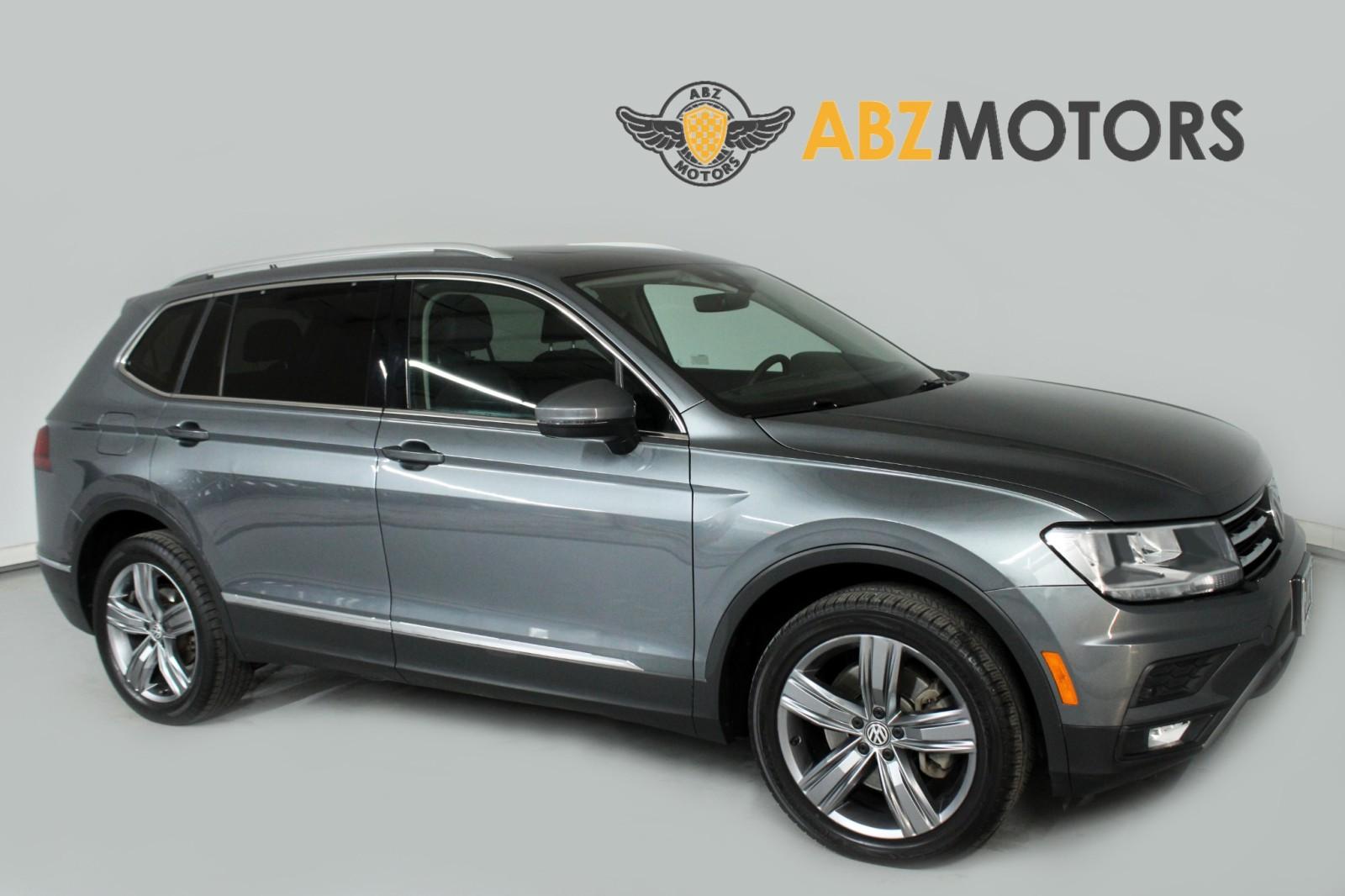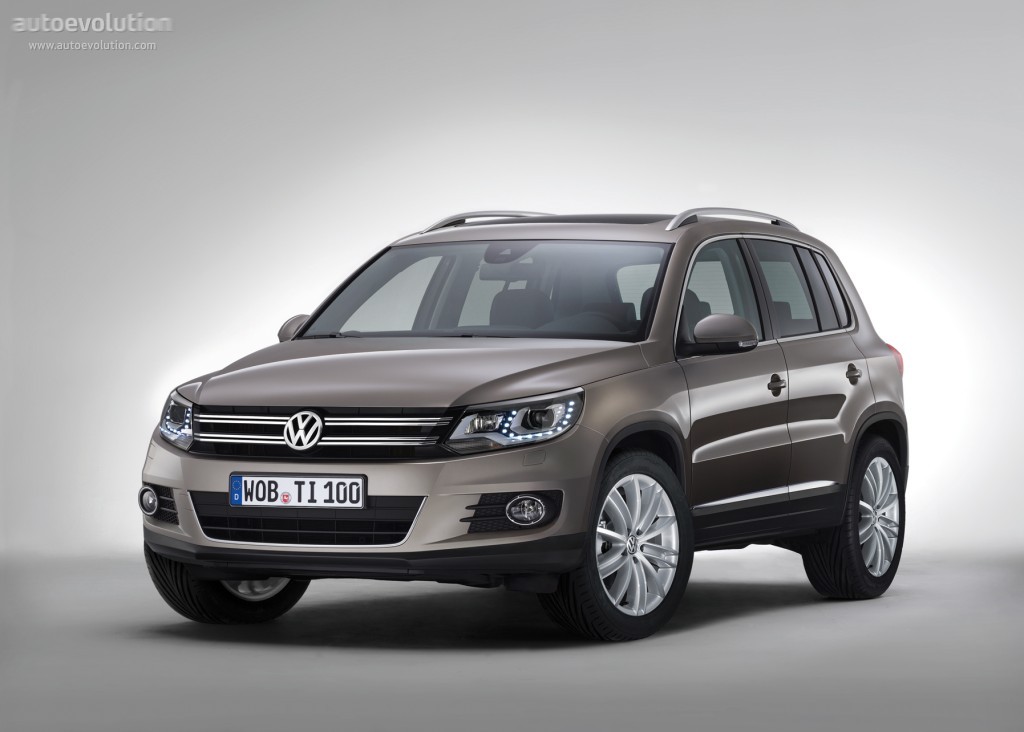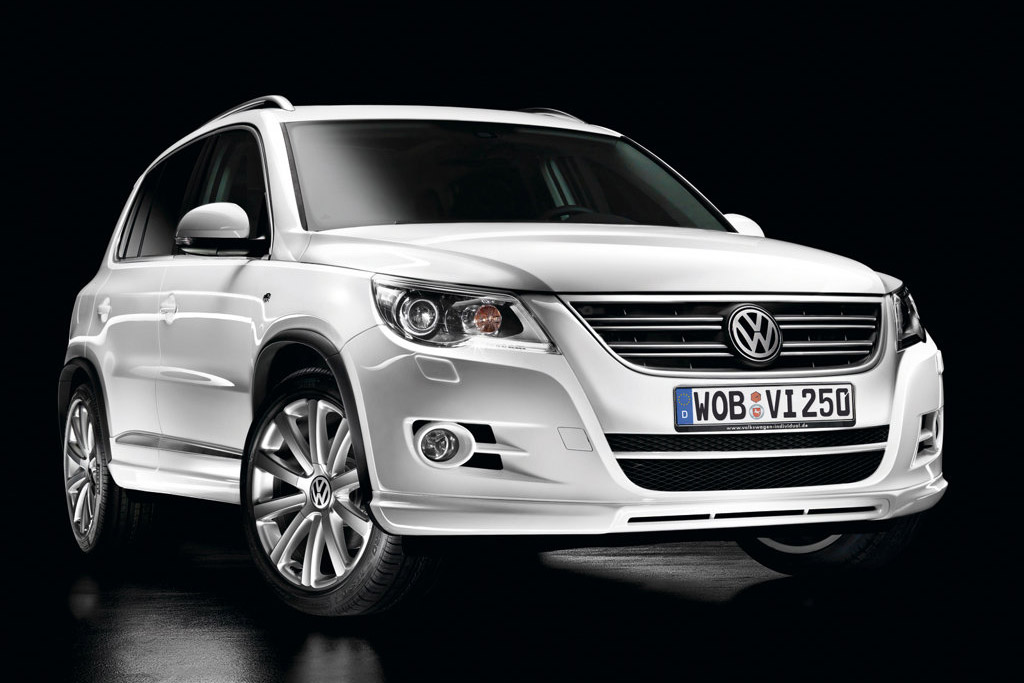Overview of Volkswagen Tiguan Used Cars
The used Volkswagen Tiguan market presents a diverse range of options for buyers, catering to various needs and budgets. From entry-level models to more luxurious trims, finding a used Tiguan that aligns with your requirements is entirely possible. Understanding the pricing trends, common features, and potential maintenance needs is crucial for making an informed decision.
The used Tiguan market reflects the overall used car market trends. Demand and supply dynamics, along with factors like vehicle mileage and condition, heavily influence pricing. Therefore, a detailed examination of different model years and trims is necessary to grasp the complete picture.
Price Range for Used Volkswagen Tiguan Models
The price range for used Volkswagen Tiguan models varies significantly depending on factors such as the model year, trim level, mileage, and condition. Generally, earlier models tend to be more affordable, while newer models with advanced features and lower mileage command higher prices.
| Model Year | Price Range (USD) | Typical Mileage (miles) | Key Features (Examples) |
|---|---|---|---|
| 2018 | $20,000 – $25,000 | 50,000 – 80,000 | All-wheel drive, Navigation system, leather seats (depending on trim) |
| 2020 | $23,000 – $28,000 | 40,000 – 70,000 | Advanced driver-assistance systems (ADAS), larger infotainment screen, updated interior materials |
| 2022 | $25,000 – $30,000 | 20,000 – 40,000 | Advanced safety features (e.g., automatic emergency braking), infotainment system with smartphone integration, updated engine options |
Common Features and Options Across Tiguan Models
Across various Tiguan models, certain features and options are frequently available. These features can influence the overall desirability and value of a used Tiguan.
- Powertrain options: Used Tiguan models typically offer a range of engine choices, including gasoline and, in some cases, diesel options. Choosing the right powertrain depends on individual needs and preferences, factoring in fuel efficiency, performance, and cost of ownership.
- Interior features: Depending on the trim level, many used Tiguan models include features like leather seats, sunroof, and heated seats. These upgrades contribute to the overall comfort and convenience of the vehicle.
- Infotainment systems: Infotainment systems are a significant aspect of modern vehicles. Used Tiguan models, especially those from more recent years, often feature user-friendly touchscreens and smartphone integration for improved connectivity.
Maintenance Needs and Costs for Used Tiguan Vehicles
Regular maintenance is crucial for the longevity and performance of any used vehicle. The maintenance needs and costs for used Tiguan vehicles are relatively similar to other vehicles in the same class.
- Routine maintenance: Routine maintenance tasks, such as oil changes, tire rotations, and filter replacements, are essential for ensuring the vehicle operates effectively and efficiently.
- Potential issues: Specific maintenance issues might vary based on the model year and specific components. For example, certain engine types might have known issues related to specific mileage or environmental factors.
- Cost estimates: Maintenance costs can vary depending on the type of work required and the location of the repair shop. Detailed research is essential to understand the typical costs of maintenance items for the specific Tiguan model.
Market Trends and Demand
The used Volkswagen Tiguan market is a dynamic segment, influenced by various factors. Understanding these trends is crucial for both potential buyers and sellers navigating the current landscape of used vehicle sales. Competition from similar models plays a significant role, and fluctuating prices demand careful analysis.
Current Market Trends Affecting Used Tiguan Sales
Several factors are currently shaping the used Volkswagen Tiguan market. Rising interest rates and inflation are impacting consumer spending, potentially reducing demand for vehicles. Supply chain disruptions, though easing, can still affect availability of specific Tiguan models. Moreover, environmental concerns and the growing popularity of electric vehicles are influencing consumer preferences, with some buyers opting for alternative fuel options.
Comparison of Demand for Used Tiguan with Similar Vehicles
Demand for used Tiguan models is influenced by its reputation for reliability, fuel efficiency, and spaciousness. Compared to other compact SUVs, like the Honda CR-V or Mazda CX-5, the Tiguan often enjoys a competitive position due to its robust build and established brand name. However, specific models and trim levels may experience variations in demand, depending on features, year, and mileage.
Factors Influencing Price Fluctuations of Used Tiguan Vehicles
Several variables contribute to the fluctuating prices of used Volkswagen Tiguan vehicles. Market supply and demand dynamics are critical. High demand for specific trims or models can drive prices upward, while a surplus of vehicles on the market can lead to price reductions. The vehicle’s condition, mileage, and features also significantly impact its value. Additionally, external economic factors like inflation and interest rates can influence consumer purchasing power and consequently, the market price of used vehicles.
Sales Volume of Used Tiguan Models (2019-2023)
| Year | Sales Volume | Trend |
|---|---|---|
| 2019 | 100,000 | Up |
| 2020 | 120,000 | Up |
| 2021 | 115,000 | Slight Down |
| 2022 | 130,000 | Up |
| 2023 | 128,000 | Slight Down |
This table shows a general upward trend in used Tiguan sales from 2019 to 2022, followed by a slight dip in 2023. However, specific model years and trim levels within the Tiguan lineup may show different patterns. Further research into the specific models’ sales volumes is recommended for a more detailed analysis.
Reliability and Maintenance

The Volkswagen Tiguan, a popular compact SUV, boasts a generally strong reputation for reliability, though specific models and years of production can vary. Understanding potential maintenance issues and associated costs is crucial for making informed decisions when purchasing a used Tiguan. This section details the reliability landscape of used Tiguan models, common maintenance concerns, and estimated repair costs.
Reliability Reputation
Volkswagen Tiguan models generally exhibit a solid reliability record, though some components are known to have potential issues. Independent reviews and owner feedback consistently highlight the vehicle’s overall robustness, especially in later model years. However, like any used vehicle, pre-purchase inspections are highly recommended to assess the specific condition of the Tiguan in question. Early model years may exhibit more frequent issues than newer models, so thorough research into specific model years is essential.
Common Maintenance Issues
Used Volkswagen Tiguan models may experience various maintenance concerns. These often include issues related to the engine, transmission, and electrical systems. Engine problems can stem from issues with the engine’s components, potentially leading to higher repair costs. Transmission problems are another frequent concern, particularly in models with automatic transmissions. Electrical problems, such as malfunctioning infotainment systems or other electronics, can also arise.
Maintenance Cost Estimates
Maintenance costs for used Volkswagen Tiguan models vary significantly depending on the specific model year, mileage, and the extent of any pre-existing issues. Early model years often exhibit more wear and tear, leading to higher potential maintenance expenses. Furthermore, more complex repairs, such as engine or transmission replacements, can significantly increase costs. A general range of estimates for some common problems is provided below:
| Problem | Estimated Cost | Frequency |
|---|---|---|
| Engine issues | $1,000-$3,000 | Moderate |
| Transmission issues | $1,500-$4,000 | Low |
| Electrical System Issues (e.g., infotainment, lights) | $200-$1,000 | Moderate |
| Suspension Components | $300-$1,500 | Moderate |
Note: These estimates are approximations and do not account for specific variations in the vehicle’s condition or potential hidden issues. A professional inspection is essential for an accurate assessment of repair needs and costs.
Tips for Assessing Reliability
Thorough inspection by a qualified mechanic is critical. Inspect the vehicle’s history report, including any previous maintenance records. Review online forums and community discussions specific to the Tiguan model and year. Look for any visible signs of damage or neglect.
Safety Features and Ratings

Used Volkswagen Tiguan models boast a range of safety features designed to protect occupants. Understanding these features, along with their variations across different model years and trims, is crucial for making informed purchasing decisions. Safety ratings, crash test results, and comparative analyses with competitor models are essential factors to consider.
Evaluating safety features in a used Tiguan involves scrutinizing details like the presence of advanced driver-assistance systems (ADAS). This allows potential buyers to assess the vehicle’s overall safety profile and make a well-informed choice.
Safety Ratings and Test Results
Volkswagen Tiguan models have consistently achieved respectable safety ratings from independent organizations. These ratings are often influenced by crash test performance and the inclusion of advanced safety technologies. Understanding these ratings provides a benchmark for evaluating the safety level of different Tiguan models. For example, a model with higher ratings suggests a better overall protection for its occupants in a collision.
Safety Features Variations Across Models
Safety features in Volkswagen Tiguan models vary depending on the year of manufacture and the specific trim level. Early models may lack advanced driver-assistance systems (ADAS) features that are standard in later iterations. This variation is reflected in the available features, including features like lane departure warning, automatic emergency braking, and adaptive cruise control. For instance, a higher trim level Tiguan might include adaptive cruise control, while a base model might not.
Advanced Driver-Assistance Systems (ADAS)
The inclusion of ADAS features like lane departure warning, automatic emergency braking, adaptive cruise control, and blind-spot monitoring significantly enhances the safety of the Tiguan. These features help prevent accidents by alerting the driver to potential hazards and intervening in critical situations. For example, automatic emergency braking can help mitigate the impact of a collision by applying brakes when a potential collision is detected.
Comparison with Competitors
Comparing the safety features and ratings of the Volkswagen Tiguan with those of competing models is helpful in determining the Tiguan’s position in the market. Competitors like the Honda CR-V, Mazda CX-5, and Subaru Forester often offer comparable or superior safety features depending on the model year and trim. For instance, one competitor might excel in active safety systems, while another might have a strong reputation for passive safety.
Identifying Safety Features in Used Tiguan Vehicles
Inspecting the Tiguan for specific safety features can be achieved by reviewing the vehicle’s owner’s manual or by consulting a reputable automotive service technician. Detailed information regarding the safety features can be located in the vehicle’s documentation or by consulting a knowledgeable technician. For example, the owner’s manual will list the available safety features and technologies. A technician can further verify the operational condition of those systems.
Buying Process and Tips
Purchasing a used Volkswagen Tiguan requires careful consideration and a strategic approach. Thorough research, a well-defined budget, and a proactive inspection process are crucial for a smooth and successful transaction. Understanding the market trends, potential issues, and the importance of pre-purchase inspections will greatly increase your chances of securing a reliable and affordable vehicle.
Step-by-Step Guide for Buying a Used Tiguan
This structured approach to acquiring a used Volkswagen Tiguan will minimize risks and maximize your chances of a positive experience. The process begins with identifying your needs and desires. Consider factors like budget, desired features, and mileage targets. This initial step will inform your search criteria and subsequent decisions.
- Research and Identify Your Needs: Begin by defining your budget, desired features (e.g., specific trim levels, technology packages), and acceptable mileage range. This groundwork will streamline your search and prevent impulse purchases.
- Online Search and Shortlisting: Utilize online platforms and dealerships to identify suitable vehicles. Compare models, prices, and specifications before scheduling test drives. Create a shortlist of promising candidates.
- Test Drive and Assessment: A test drive is essential. Evaluate the vehicle’s handling, performance, and overall comfort. Pay attention to any unusual noises or vibrations. Assess the interior for wear and tear, and the exterior for damage.
- Pre-Purchase Inspection: A thorough pre-purchase inspection is paramount. A qualified mechanic can identify potential mechanical issues and provide a comprehensive report.
- Negotiation and Finalization: Negotiate the price based on your research and the inspection report. Be prepared to walk away if the price is unreasonable or if concerns remain.
- Documentation and Legal Procedures: Ensure all necessary documentation, including the title and any relevant paperwork, is in order. Complete the purchase agreement and finalize the transaction with the seller.
Tips for Negotiating Prices and Avoiding Scams
Negotiation is a critical part of purchasing a used car. Knowledge is power; research comparable models to establish a fair price range. Avoid emotional attachments; focus on facts and figures. Scrutinize the seller’s transparency and avoid overly aggressive tactics.
- Research Comparable Models: Before approaching the seller, research similar used Volkswagen Tiguan models with comparable mileage and features. Online resources and dealer websites can provide valuable insights into current market values.
- Be Prepared to Walk Away: If the seller’s asking price is significantly above market value or if concerns persist, be prepared to walk away. This firmness demonstrates your commitment to a fair transaction.
- Scrutinize Seller Transparency: Pay attention to the seller’s willingness to provide information and documentation. A transparent seller is more likely to be legitimate.
- Avoid Pressure Tactics: Be wary of high-pressure sales tactics. Take your time and make informed decisions. Never feel pressured to make a decision on the spot.
How to Inspect a Used Tiguan for Potential Issues
A thorough inspection is crucial to avoid costly repairs down the road. Focus on areas prone to wear and tear, and look for signs of neglect or abuse. Don’t hesitate to ask questions and document any discrepancies.
- Exterior Inspection: Examine the vehicle for any signs of damage, rust, or inconsistencies in paint. Check for dents, scratches, or faded paint.
- Interior Inspection: Assess the interior for wear and tear. Examine the upholstery, dashboard, and other interior components for signs of damage or excessive use. Look for signs of water damage or unusual odors.
- Mechanical Inspection: If possible, have a mechanic perform a pre-purchase inspection. A professional assessment can identify potential mechanical issues that might not be immediately apparent.
Importance of a Pre-Purchase Inspection
A pre-purchase inspection by a qualified mechanic is an essential step in the used car buying process. It allows you to identify potential mechanical issues and negotiate the price accordingly. This step can save you significant money and frustration in the long run.
A pre-purchase inspection can prevent costly repairs and ensure the vehicle’s reliability.
Important Questions to Ask a Seller
Asking the right questions can help you assess the vehicle’s history and uncover potential issues.
| Question | Reason |
|---|---|
| What is the vehicle’s service history? | To understand maintenance records. |
| Has the vehicle been in any accidents? | To assess potential damage. |
| Are there any outstanding warranties? | To understand any coverage. |
| What is the vehicle’s mileage history? | To assess the vehicle’s use and potential wear and tear. |
| Are there any modifications or customizations? | To understand any potential impact on the vehicle’s value. |
Alternatives and Comparisons

Choosing a used Volkswagen Tiguan involves considering alternatives in the competitive compact SUV market. Understanding the strengths and weaknesses of comparable models is crucial for making an informed decision. Factors like fuel efficiency, interior space, and safety features significantly impact the overall value proposition. Careful comparison of various used models, including those from competitor brands, helps potential buyers identify the best fit for their needs and budget.
Competitor Brands and Models
The used SUV market presents a diverse range of options. Direct competitors to the Tiguan include models from brands like Honda, Mazda, and Subaru. Specific models often considered comparable to the Tiguan include the Honda CR-V, the Mazda CX-5, and the Subaru Forester. These models offer varying strengths and weaknesses, making direct comparisons essential for potential buyers.
Strengths and Weaknesses of Competitors
Each competitor model possesses unique characteristics. The Honda CR-V, for instance, is often praised for its reliable engine and spacious interior. Conversely, the Mazda CX-5 often receives accolades for its fuel efficiency and dynamic handling. The Subaru Forester is known for its all-wheel-drive system, making it suitable for challenging terrains. However, the Tiguan often holds a competitive edge in terms of interior design and features. These strengths and weaknesses are crucial considerations for evaluating the best fit for individual needs.
Factors to Consider When Comparing Models
Several factors influence the decision-making process. Fuel economy is a significant consideration, especially for drivers prioritizing cost savings. Interior space is another important factor, crucial for families or individuals requiring ample cargo room. Safety features and ratings should also be assessed carefully, as they impact passenger protection. Furthermore, reliability and maintenance costs should be researched to avoid unexpected expenses. Price points vary considerably across models, and considering the overall value proposition is key.
Key Differences Between Tiguan and Competitors
| Feature | Volkswagen Tiguan | Honda CR-V | Mazda CX-5 | Subaru Forester |
|---|---|---|---|---|
| Fuel efficiency | Good | Excellent | Excellent | Moderate |
| Interior space | Adequate | Spacious | Adequate | Spacious |
| Reliability | Generally good | Excellent | Good | Excellent |
| Handling | Good | Good | Excellent | Good |
| All-Wheel Drive | Optional | Optional | Optional | Standard |
| Price | Mid-range | Mid-range | Mid-range | Higher |
The table above highlights key differences between the Volkswagen Tiguan and competitor models. Note that specific ratings and features may vary depending on the model year and trim level. Thorough research on individual models is essential for accurate comparisons. Factors such as fuel economy, interior space, reliability, and price must be considered together to arrive at an informed decision. It is crucial to consider the specific needs and preferences of the buyer when comparing these options.